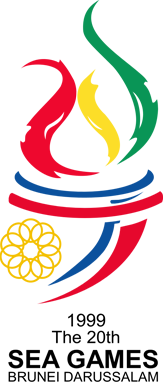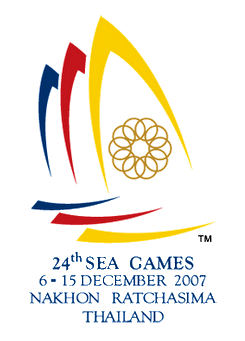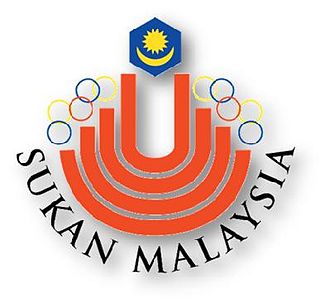
The 1999 SEA Games, officially known as the 20th SEA Games and commonly known as Brunei Darussalam 1999, was a Southeast Asian multi-sport event held in Bandar Seri Begawan, Brunei. This was the first time Brunei hosted the Southeast Asian Games and also in Borneo island. These were the last to have ever staged during the 20th century, and this was the only occasion, to date, that Brunei had held the SEA Games.
The 1997 Southeast Asian Games, officially known as the 19th Southeast Asian Games, was a Southeast Asian multi-sport event held in Jakarta, Indonesia. This was the third time that Indonesia hosted the games. Jakarta also hosted the SEA Games in 1979 and 1987.

The 2007 Southeast Asian Games, officially known as the 24th Southeast Asian Games, was a Southeast Asian multi-sport event held in Nakhon Ratchasima (Korat), Thailand. This was the sixth time Thailand hosted the Southeast Asian Games and its first time since 1995. Previously, Thailand also hosted the 1959 inaugural games, 1967 games, 1975 games and the 1985 games.

The 2009 Southeast Asian Games, officially known as the 25th Southeast Asian Games, was a Southeast Asian multi-sport event hosted by Vientiane, Laos. This was the first time Laos had held the Southeast Asian Games as Laos had previously declined hosting the 1965 Southeast Asian Peninsular Games, citing financial difficulties. This was also the first time the Southeast Asian Games was held in a landlocked country.

The 2011 Southeast Asian Games, officially known as the 26th Southeast Asian Games, or the 26th SEA Games, and commonly known as Jakarta-Palembang 2011, was a Southeast Asian multi-sport event held from 11 to 22 November 2011 in Jakarta and Palembang, Indonesia. It was Indonesia's fourth time to host the Southeast Asian Games, and its first since 1997. Previously, Indonesia also hosted in 1979 and 1987. The capital city of Jakarta hosted all three of the previous Games prior to this. Palembang became the third SEA Games non-capital host city, after Chiang Mai (1995) and Nakhon Ratchasima (2007), both in Thailand. Around 5,965 athletes from 11 participating nations participated at the games which featured 545 events in 44 sports. The biggest competitor, sports, and events in Southeast Asian Games history.

The Sukma Games is a biennial national multi-sport event involving young athletes from Malaysia's 13 states and 3 Federal Territories. The games are regulated by the National Sports Council of Malaysia, the state sports council of the respective member states, the Olympic Council of Malaysia and the National Sports association of the games respective sporting event. The logo was designed by Anuar bin Dan in 1986.

The 2008 ASEAN Para Games, officially known as the 4th ASEAN Para Games, was a Southeast Asian disabled multi-sport event held in Nakhon Ratchasima, Thailand from 20 to 26 January 2008, one month after the 2007 Southeast Asian Games. This was the first time Thailand hosted the ASEAN Para Games.

The 2009 ASEAN Para Games, officially known as the 5th ASEAN Para Games, was a Southeast Asian disabled multi-sport event held in Kuala Lumpur, Malaysia from 15 to 19 August 2009. This was the second time Malaysia hosted the ASEAN Para Games and its first time since 2001.

The 2014 Asian Para Games, also known as the 2nd Asian Para Games, was an Asian disabled multi-sport event held in Incheon, South Korea, from 18 to 24 October 2014, 2 weeks after the end of the 2014 Asian Games. This was the first time South Korea hosted the games. Around 4,500 athletes from 41 countries competed in the games which featured 443 events in 23 sports. The games was opened by the Prime Minister Chung Hong-won at the Incheon Munhak Stadium. The final medal tally was led by China, followed by host South Korea and Japan, while Kazakhstan, Myanmar, Singapore, Syria and Qatar won their first ever Asian Para Games gold medal. 24 world and 121 Asian records were broken during the Games.

2003 FESPIC Youth Games, the 1st and only FESPIC Youth Games in history(Chinese: 2003年第一屆遠東和南太平洋地區青年殘疾人運動會、2003年第一届远东和南太平洋地区青年残疾人运动会、第一屆遠南青殘會、第一届远南青残会), were an Asia Pacific regional youth disabled multi-sport event held in Hong Kong, China from 23 to 27 September 2003. Around 314 athletes from 15 participating nations participated at the games which featured 5 sports. Hong Kong is the only nation that had hosted the FESPIC Youth Games, and it was the first and only time Hong Kong hosted the event. The games were opened by Tung Chee Hwa at the Ma On Shan Sports Ground. In 2006, both the FESPIC organisation and the event were officially defunct and succeeded by the Asian Paralympic Committee and the Asian Youth Para Games respectively.

The 2006 FESPIC Games, officially known as the 9th and Final FESPIC Games, was an Asia-Pacific disabled multi-sport event held in Kuala Lumpur, Malaysia, from 25 November to 1 December 2006. This was the first and last time Malaysia hosted the games. Malaysia is the eighth and the last FESPIC organisation member to host the FESPIC games after Japan, Australia, Hong Kong, Indonesia, China, Thailand, and South Korea. Around 3,641 athletes from 46 nations competed at the games which featured 19 sports. The games was opened by Prime Minister of Malaysia, Abdullah Ahmad Badawi at the KLFA stadium.

The 2012 ASEAN University Games officially known as the 16th ASEAN University Games was a Southeast Asian university multi-sports event held in Vientiane, Laos. This was the first time Laos hosted the games. Laos is the eighth nation to host the ASEAN University Games after Thailand, Indonesia, Malaysia, Singapore, Brunei, Philippines and Vietnam.

The 2010 Sukma Games, officially known as the 13th Sukma Games, was a Malaysian multi-sport event held in Malacca from 12 to 19 June 2010. Host Malaccan swimmer J. Karthik and Federal Territorian swimmer Chan Kah Yan were announced as Best Sportsman and Best Sportswoman of the event respectively.

On 27 May 2010, the National Sports Council of Malaysia had decided the Sukma Games be held annually with the National Sports Council held the games every odd year in Kuala Lumpur, while the state held the games every even year. It was also decided that the odd year Sukma Games featured only optional sports while the even year Sukma Games featured 19 core sports and 5 optional sports.

The 2002 Sukma Games, officially known as the 9th Sukma Games, was a Malaysian multi-sport event held in Sabah from 7 to 14 September 2002. Perakian gymnast Ng Shu Mun, Kuala Lumpurian athlete Ngew Sin Mei and Negeri Sembilan athlete Petra Nabila Mustafa were announced as Best Sportsman, Best Sportswoman and Most Promising Sportswoman of the event respectively.

The 2001 ASEAN Para Games, officially known as the 1st ASEAN Para Games, was a Southeast Asian disabled multi-sport event held a month after the 2001 Southeast Asian Games. It was held in Kuala Lumpur, Malaysia from 26 to 29 October 2001. This ASEAN Para Games was the first edition held in history for Southeast Asia countries and also the first edition hosted by Malaysia.

The 2016 ASEAN University Games, officially known as the 18th ASEAN University Games, was a Southeast Asian university multi-sports event held in Singapore. This was the third time Singapore hosted the ASEAN University Games, and its first time since 1994. Previously, Singapore also hosted the 1986 games.
The Cerebral Palsy Games are a multi-sport competition for athletes with a disability, which under the former name of the International Stoke Mandeville Games were the forerunner of the Paralympic Games. The competition has been formerly known as the International Cerebral Palsy Games or the Stoke Mandeville Games. Since the 1990s the Games have been organized by Cerebral Palsy International Sports and Recreation Association (CPISRA), so they called also CPISRA World Games.

The 2008 ASEAN University Games, officially known as the 14th ASEAN University Games, was a Southeast Asian university multi-sport event held in Kuala Lumpur, Malaysia from 11 to 21 December 2008. This was the third time Malaysia hosted the games after 1984 and 1993.

The 2022 Asian Para Games, also known as the 4th Asian Para Games and commonly known as the Hangzhou 2022 Asian Para Games, were a multi-sport event that paralleled the 2022 Asian Games which was held for Asian athletes with disabilities in Hangzhou, Zhejiang, China from 22 to 28 October 2023. Hangzhou was the second Chinese city to host the Asian Para Games, after Guangzhou in 2010.


















